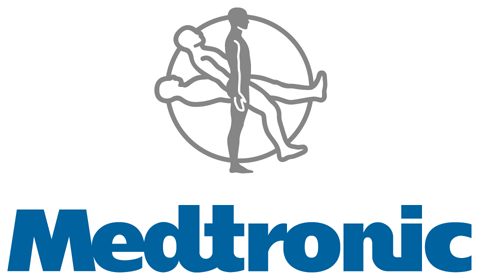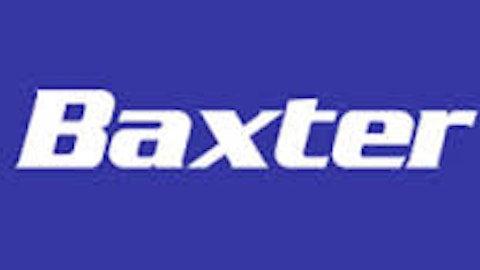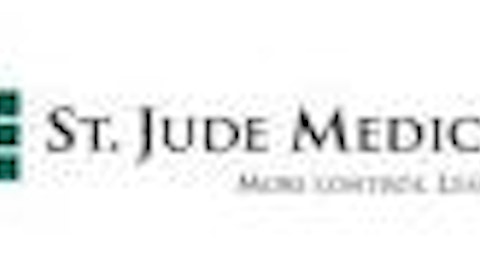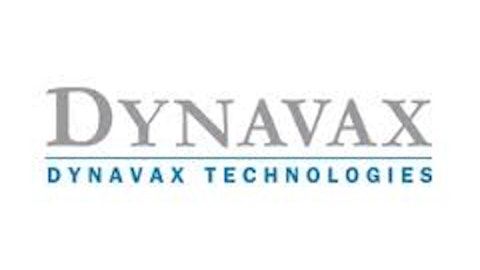Now more than ever, a comfortable retirement depends on secure, stable investments. Unfortunately, the right stocks for retirement won’t just fall into your lap. In this series, I look at 10 measures to show what makes a great retirement-oriented stock.
As a leader in medical-device technology, Medtronic, Inc. (NYSE:MDT) stands to benefit greatly from the trends toward greater health-care access and an aging population in need of more care. Yet new challenges have hit the medical-device industry. Can Medtronic, Inc. (NYSE:MDT) adapt? Below, we’ll revisit how Medtronic, Inc. (NYSE:MDT) does on our 10-point scale.

With decades to go before you need to tap your investments, you can take greater risks, weighing the chance of big losses against the potential for mind-blowing returns. But as retirement approaches, you no longer have the luxury of waiting out a downturn.
Sure, you still want good returns, but you also need to manage your risk and protect yourself against bear markets, which can maul your finances at the worst possible time. The right stocks combine both of these elements in a single investment.
When scrutinizing a stock, retirees should look for:
- Size. Most retirees would rather not take a flyer on unproven businesses. Bigger companies may lack their smaller counterparts’ growth potential, but they do offer greater security.
- Consistency. While many investors look for fast-growing companies, conservative investors want to see steady, consistent gains in revenue, free cash flow, and other key metrics. Slow growth won’t make headlines, but it will help prevent the kind of ugly surprises that suddenly torpedo a stock’s share price.
- Stock stability. Conservative retirement investors prefer investments that move less dramatically than typical stocks, and they particularly want to avoid big losses. These investments will give up some gains during bull markets, but they won’t fall as far or as fast during bear markets. Beta measures volatility, but we also want a track record of solid performance as well.
- Valuation. No one can afford to pay too much for a stock, even if its prospects are good. Using normalized earnings multiples helps smooth out one-time effects, giving you a longer-term context.
- Dividends. Most of all, retirees look for stocks that can provide income through dividends. Retirees want healthy payouts now and consistent dividend growth over time — as long as it doesn’t jeopardize the company’s financial health.
With those factors in mind, let’s take a closer look at Medtronic.
| Factor | What We Want to See | Actual | Pass or Fail? |
|---|---|---|---|
| Size | Market cap > $10 billion | $45.5 billion | Pass |
| Consistency | Revenue growth > 0% in at least four of past five years | 5 years | Pass |
| Free cash flow growth > 0% in at least four of past five years | 4 years | Pass | |
| Stock stability | Beta < 0.9 | 0.92 | Fail |
| Worst loss in past five years no greater than 20% | (36.3%) | Fail | |
| Valuation | Normalized P/E < 18 | 16.85 | Pass |
| Dividends | Current yield > 2% | 2.3% | Pass |
| 5-year dividend growth > 10% | 16.1% | Pass | |
| Streak of dividend increases >= 10 years | 35 years | Pass | |
| Payout ratio < 75% | 30.1% | Pass | |
| Total score | 8 out of 10 |
Source: S&P Capital IQ. Total score = number of passes.
Since we looked at Medtronic last year, the company has given up a point, as the stock’s volatility increased. But the shares haven’t done badly at all, rising nearly 20% over the past year.
Health-related businesses have huge prospects from favorable demographic trends and advances in technology, and Medtronic’s focus on cardiovascular health issues — with its pacemakers, stents, and valve replacements — puts it in a commanding position within the industry.
Yet recently, sales in the cardiac rhythm management area have fallen. Boston Scientific Corporation (NYSE:BSX) recently reported that its full-year 2012 sales in the segment fell 7%, and St. Jude Medical, Inc. (NYSE:STJ) reported a 6% drop in year-over-year cardiac sales in its most recent quarter, as concerns arise that the area may be oversaturated and not present the potential for growth that it’s had in the past. For its part, though, Medtronic managed to limit its cardiac sales declines to just 1% in its quarterly results last month, again showing the company’s relative strength.
Other areas, including stents and neurological devices, have provided more growth for Medtronic, Inc. (NYSE:MDT). Earlier this week, Medtronic got approval from the FDA to sell longer drug-eluting stents, helping it treat longer coronary lesions in diabetes patients.
Moreover, the much-feared medical-device tax hasn’t had as big of an impact as originally feared. Medtronic now expects the tax to cost just half its original estimates, providing a minor earnings boost.
For retirees and other conservative investors, Medtronic’s long history of increasing dividends and healthy payout ratio leave quite a bit of room for higher income in the future. With solid prospects for sales growth as well, Medtronic is a smart buy for many retirement portfolios.
The article Will Medtronic Help You Retire Rich? originally appeared on Fool.com.
Fool contributor Dan Caplinger has no position in any stocks mentioned. The Motley Fool owns shares of Medtronic.
Copyright © 1995 – 2013 The Motley Fool, LLC. All rights reserved. The Motley Fool has a disclosure policy.





